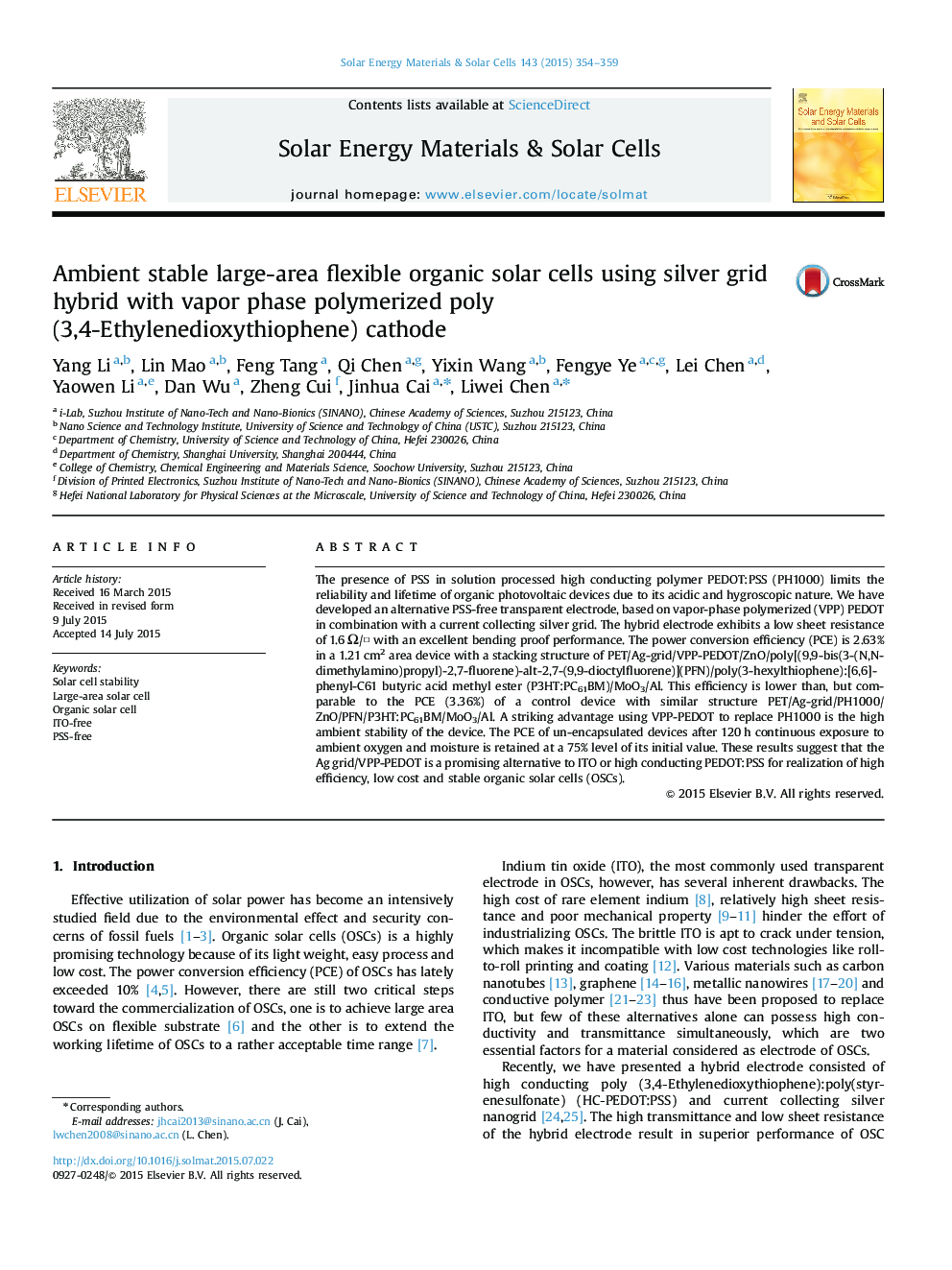| Article ID | Journal | Published Year | Pages | File Type |
|---|---|---|---|---|
| 6535078 | Solar Energy Materials and Solar Cells | 2015 | 6 Pages |
Abstract
The presence of PSS in solution processed high conducting polymer PEDOT:PSS (PH1000) limits the reliability and lifetime of organic photovoltaic devices due to its acidic and hygroscopic nature. We have developed an alternative PSS-free transparent electrode, based on vapor-phase polymerized (VPP) PEDOT in combination with a current collecting silver grid. The hybrid electrode exhibits a low sheet resistance of 1.6 Ω/⡠with an excellent bending proof performance. The power conversion efficiency (PCE) is 2.63% in a 1.21 cm2 area device with a stacking structure of PET/Ag-grid/VPP-PEDOT/ZnO/poly[(9,9-bis(3-(N,N-dimethylamino)propyl)-2,7-fluorene)-alt-2,7-(9,9-dioctylfluorene)](PFN)/poly(3-hexylthiophene):[6,6]-phenyl-C61 butyric acid methyl ester (P3HT:PC61BM)/MoO3/Al. This efficiency is lower than, but comparable to the PCE (3.36%) of a control device with similar structure PET/Ag-grid/PH1000/ZnO/PFN/P3HT:PC61BM/MoO3/Al. A striking advantage using VPP-PEDOT to replace PH1000 is the high ambient stability of the device. The PCE of un-encapsulated devices after 120 h continuous exposure to ambient oxygen and moisture is retained at a 75% level of its initial value. These results suggest that the Ag grid/VPP-PEDOT is a promising alternative to ITO or high conducting PEDOT:PSS for realization of high efficiency, low cost and stable organic solar cells (OSCs).
Related Topics
Physical Sciences and Engineering
Chemical Engineering
Catalysis
Authors
Yang Li, Lin Mao, Feng Tang, Qi Chen, Yixin Wang, Fengye Ye, Lei Chen, Yaowen Li, Dan Wu, Zheng Cui, Jinhua Cai, Liwei Chen,
